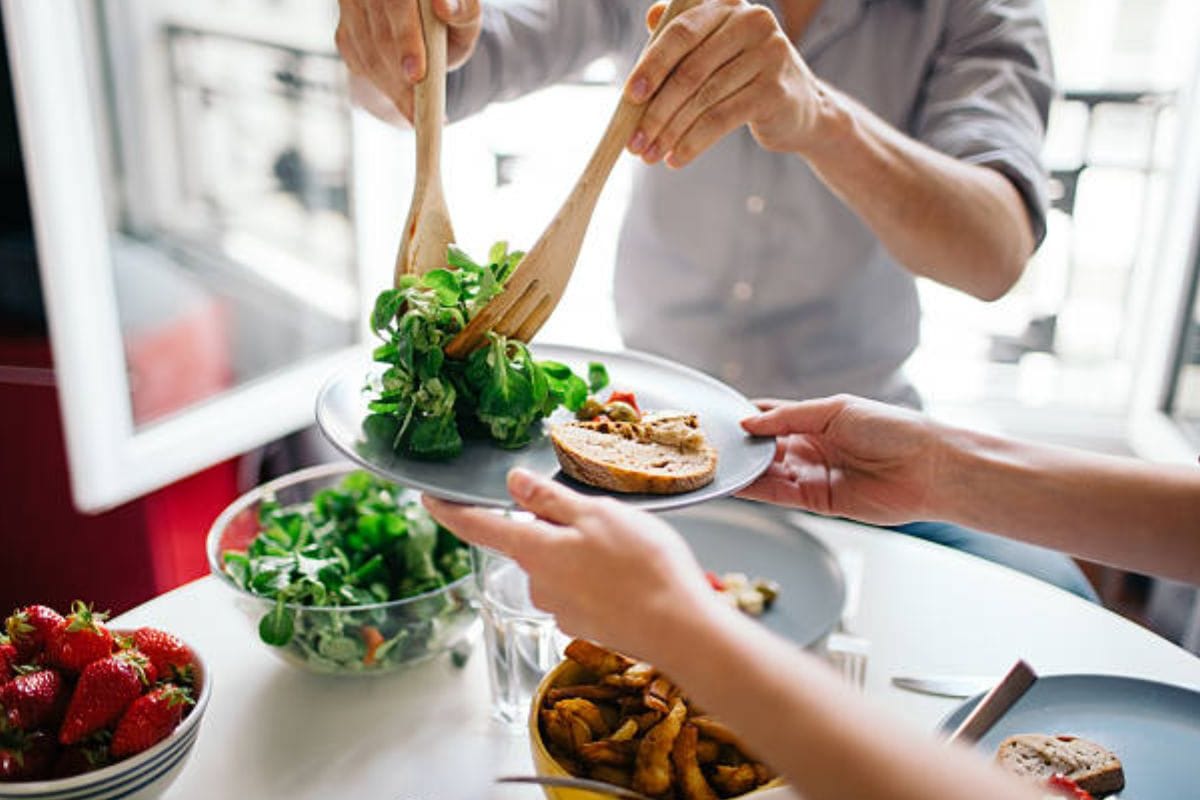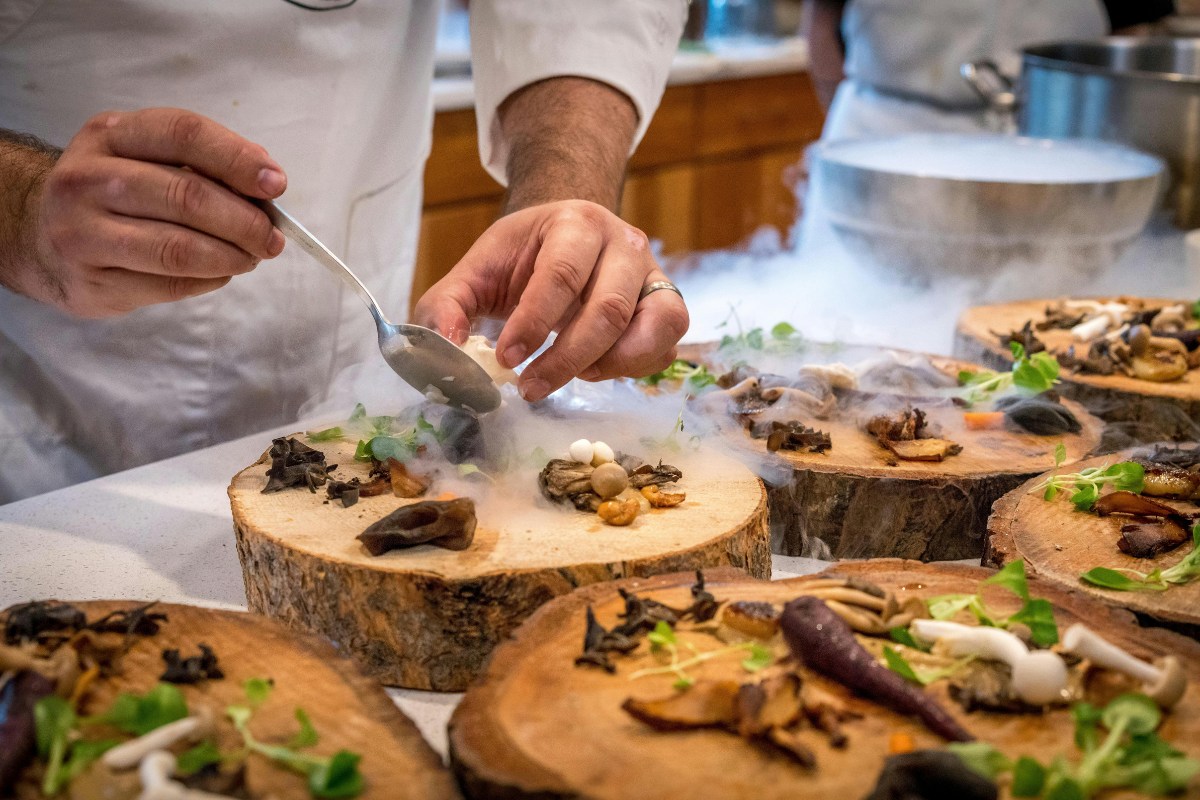Dubai's summers are notorious for their sweltering heat and high humidity levels. The temperatures soar above 40°C (104°F) and the desert sun beats down relentlessly, it becomes essential to adapt your diet. Navigating these intense summers requires more than just sunscreen and air conditioning; it demands a strategic approach to nutrition to stay cool, hydrated, and nourished.
Here is a comprehensive guide on how to modify your diet effectively to beat the heat.
Hydration is Key

In hot and humid conditions, your body sweats more profusely to regulate its temperature. This increased sweat production leads to a significant loss of water and electrolytes, which must be replenished promptly to avoid dehydration. It can also occur when your body loses more fluid than it takes in, leading to symptoms such as thirst, dry mouth, headache, dizziness, and fatigue.
Do's:
- Drink plenty of water: Aim for at least 3-4 liters per day, spread throughout the day.
- Include electrolyte-rich foods: Such as bananas, oranges, coconut water, and yogurt to replenish electrolytes lost through sweat.
- Hydrate before you feel thirsty: Thirst is a late sign of dehydration; preemptively drink water throughout the day.
- Incorporate cooling beverages: Such as herbal teas, infused water, and diluted fruit juices to enhance hydration and refreshment.
Dont's:
- Limit caffeine and alcohol: They can increase fluid loss and contribute to dehydration.
- Don’t ignore signs of dehydration: Such as dark yellow urine, dry mouth, or fatigue.
- Avoid large amounts of water with meals: Drink moderately to aid digestion without diluting stomach acid.
- Don’t overlook electrolytes: Ensure you’re replenishing not just water but also essential minerals lost through sweat.
Light and Refreshing Meals

During Dubai’s intense summers, opting for light and refreshing meals is not only a matter of culinary preference but also a necessity for maintaining energy levels and staying comfortable in the extreme heat. By focusing on fresh, water-rich ingredients, lean proteins, and creative meal preparations, you can enjoy delicious and nutritious meals that are perfectly suited to the season’s demands. Embrace the abundance of seasonal produce and culinary options available in Dubai to create meals that are both satisfying and refreshing.
Do's:
- Include high water content foods: Such as watermelon, oranges, cucumbers, and tomatoes to stay hydrated.
- Choose lean proteins: Like fish, chicken breast, and legumes for lighter meals that are easier to digest.
- Prepare fresh salads and cold dishes: Incorporate leafy greens, vegetables, and whole grains with light dressings for nutrient-packed meals.
- Use grilling and steaming: Cooking methods that retain natural flavors without adding excessive fats or oils.
- Choose light breakfasts: Start your day with fruits, yogurt, or whole grains to kickstart your metabolism without feeling heavy.
Dont's:
- Avoid heavy, greasy foods: Such as fried dishes and fatty meats that can be difficult to digest in hot weather.
- Steer clear of excessive salt: Minimize intake of heavily salted foods that can increase thirst and water retention.
- Skip meals or overeat: Maintain regular, balanced meals to sustain energy levels without overwhelming digestion.
Cooling Foods and Beverages

Dubai's scorching summers call for strategic choices in diet to combat the heat and stay hydrated. Incorporating cooling foods and beverages not only helps regulate body temperature but also ensures adequate hydration and nutrition. By prioritizing hydration and choosing foods that naturally cool the body, you can navigate the summer months in Dubai with comfort and vitality.
What to eat:
- Hydrating fruits: Watermelon, cucumbers, citrus fruits (oranges, lemons, limes)
- Coconut water: Natural electrolyte replenishment
- Herbal teas: Peppermint, chamomile, hibiscus
- Yogurt: Greek yogurt or plain yogurt with live cultures
- Leafy greens: Lettuce, spinach, kale
- Mint and cilantro: Cooling herbs for salads and beverages
- Gazpacho: Cold soup made with tomatoes, cucumbers, peppers
- Cold quinoa salad: Quinoa with cucumbers, tomatoes, light vinaigrette
- Frozen treats: Fruit sorbets, frozen grapes
What to avoid:
- Heavy, rich foods: Avoid heavy meats like beef and lamb.
- Spicy foods: Minimize consumption of overly spicy dishes.
- Fried foods: Opt for grilled or steamed options instead.
- Excessive caffeine: Limit intake of coffee and energy drinks.
- Alcoholic beverages: These can contribute to dehydration.
- High-sugar beverages: Reduce consumption of sugary sodas and juices.
- Processed foods: Choose fresh over packaged foods whenever possible.
Timing Matters

Timing matters significantly when it comes to dietary regulations, especially in adapting to Dubai's intense summers. The extreme heat and humidity can affect digestion, appetite, and overall energy levels.
Do's:
- Eat smaller, frequent meals: Opt for 4-5 light meals throughout the day to maintain steady energy levels.
- Time meals wisely: Have your main meal, like lunch, during cooler hours (midday to early afternoon) for better digestion.
- Listen to your body: Eat when hungry and stop when comfortably full to avoid overeating and support digestion.
Dont's:
- Eat late and heavy dinners: Avoid heavy dinners and eating right before bedtime to improve sleep quality and digestion.
- Ignore body signals: Don't ignore hunger or eat out of habit; listen to your body’s cues for optimal meal times.
Snack Smart

By choosing snacks that are hydrating, nutritious, and easy on digestion, you can beat the heat in summer.
Summer snack ideas
- Fruit popsicles: Blend fresh fruits like strawberries, watermelon, or kiwi with water or coconut water, and freeze in molds.
- Yogurt parfaits: Layer Greek yogurt with fresh berries or chopped fruits, and freeze for a creamy, nutritious treat.
- Frozen grapes: Wash and freeze grapes for a refreshing, icy snack.
- Trail mix: Combine nuts (almonds, walnuts), seeds (pumpkin, sunflower), and dried fruits (apricots, cranberries).
- Chilled fruit slices: Keep watermelon, cantaloupe, or cucumber slices in the fridge for hydrating snacking.
- Vegetable sticks with dip: Enjoy carrot, cucumber, and bell pepper sticks with hummus or tzatziki.
- Coconut water: Drink it fresh or from packaged versions for natural electrolytes.
- Chia seed pudding: Mix chia seeds with coconut or almond milk for hydration and nutrients.
- Smoothies: Blend fresh fruits, greens (spinach, kale), and a liquid base like water or almond milk.
Smart snacking tips
- Portion control: Snack in moderation to avoid discomfort in the heat.
- Choose fresh: Opt for whole, fresh foods over processed snacks.
- Balanced snacks: Include carbs, protein, and healthy fats for sustained energy.
- Timing: Snack between meals to maintain steady energy levels.
Remember, listening to your body’s cues and adjusting your diet accordingly is key to thriving in Dubai’s summer heat. By following these guidelines, you can make the most of the season while keeping your health and well-being in check.
Also Read:















